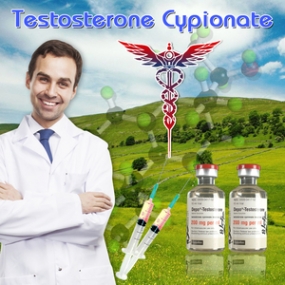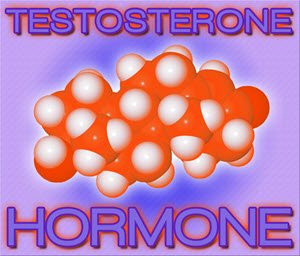Video Link: https://vimeo.com/293587366
Video Download: Click Here To Download Video
Video Stream: Click Here To Stream Video
Andropause: Age-Associated Testosterone Decline
Are you over the age of thirty, and feel like your body is starting to just slow down? Are you starting to experience sexual issues such as low libido or erectile dysfunction?
You very well may be suffering from Andropause. Andropause is a natural condition and nothing to be embarrassed about.
What is Andropause?

Andropause is a natural, age-related condition that men deal with, that bears some similarity to Menopause. Beginning at puberty, male Testosterone Levels skyrocket and drop to normal adult levels by the late teens.
Those high Testosterone Levels contribute to a lot of the characteristics that we attribute to teenagers and young men. They are full of vitality and bursting with libido and sexual desire. They tend to be highly confident and assertive, and there's a reason why many men consider this the physical peak of their lives.
The Effects of Low-T and Andropause Clearly Shown in Athletes
Of course, like all good things, this healthy Testosterone Production eventually comes to an end. All men will experience Testosterone Decline.
It is a natural aspect of the human condition. Testosterone Production starts to drop slowly around the late twenties or early thirties. In fact, you can see this drop-off play out in sports.
Scientific research has shown that men hit their athletic peak around the age of 27. At this point, they have dedicated years upon years to their craft, honing their skills to become the elite members of their sport. Then, around the age of 27 on average, their output starts to go into decline.
A big reason for this is because Testosterone Levels start to drop, meaning that no matter how hard they work out, they can't sustain the output of their younger peers.
Of course, a large subset of players remain successful long after the age of 27, but this physiological decline bears out in the data, and players start to drop off in physical ability.
How Fast Does Andropause Occur?
The average person, however, likely won't notice this decline immediately. Testosterone Levels drop slowly at first, at a rate of only about 1%-2% per year. Around the age of forty, this decline speeds up somewhat, and this is when many men start to become symptomatic.
How Do the Symptoms of Andropause Manifest?
The initial symptoms that most people experience are related to energy and metabolism.
Men get tired more easily, giving in to both mental and physical fatigue. If they regularly exercise, they may start to have trouble gathering up the willpower to work out, or might notice a reduced physiological exercise capacity.
Andropause and Body Composition
Later on, these issues start to manifest themselves in changes in body composition. They start to gain weight and lose muscle mass.
Testosterone is perhaps the most powerful anabolic hormone produced by the human body and is absolutely necessary for men to sustain the muscle mass that is associated with masculinity.
Andropause and Sexual Health
In addition to metabolism and strength, Testosterone, as well as its precursors, is necessary to sustain sexual health.
Testosterone is the hormone that kicks off sexual libido and facilitates sexual pleasure and sexual ability. As Testosterone Levels start to fall, it directly correlates with a decline in libido and sexual function.
Although other symptoms of Andropause (also known as Age-Associated Low-T) manifest earlier, they are often misinterpreted. Often, men believe that they are just getting lazier or less outgoing as they grow older, but it can actually be attributed to Hormone Deficiency.
Andropause and Psychology
Testosterone Deficiency even contributes to depression and anxiety. Testosterone is one of the keys to healthy male psychology, and as its levels decline, men are more likely to become more timid, or the dominant side of their personality starts to diminish.
There is even research that shows that men that have more Testosterone than their peers tend to do better in business and finance because they are more likely to engage in the healthy risks necessary to maximize success in such industries.
Symptoms of Andropause
So, if you are growing older and you have an inkling that you may be suffering from hormone decline.
It pays to understand the signs. If you are suffering from three or more of the following symptoms or you are experiencing any of the following sexual symptoms, there is a real chance that you are suffering from Andropause or Low-T, and would benefit from making an appointment with a licensed and board-certified hormone specialist:
Erectile Dysfunction
Inhibited Libido
Depression
Loss of Muscle Mass
Weight Gain
Anxiety
Depression
Loss of Bone Mineral Density
Cognitive Decline
Thinning Beard or Body Hair
Reduced Fertility
What Are the Options for Patients Suffering from Andropause?
If you discover that you are suffering from Andropause, there are a lot of treatment options available to you. You've likely heard of Testosterone Creams like Androgel and Axiron, but there are a number of other ways to deliver therapeutic Testosterone Therapy for Low-T.
The following are some of the types of Testosterone Therapy available to you as a patient:
Testosterone Patches – Low-T Patches are applied daily and provide a steady stream of Testosterone through the skin, and are replaced every 24 hours.
Testosterone Creams - Low-T Creams and Gels are applied once every day, usually in the morning, and provide enough Testosterone to sustain healthy, youthful Testosterone Levels for an entire day.
Testosterone Injections – Low-T Injections, such as Testosterone Cypionate and Testosterone Enanthate, are designed to provide a substantive dose of Testosterone that lasts anywhere from a few days (Testosterone Propionate) to a week or more (Testosterone Enanthate and Cypionate)
Testosterone Pellet Implants – For patients that are interested in an ongoing Testosterone Treatment that is long-lasting and doesn't require daily or weekly administrations, Testosterone Implants are delivered via a simple, nearly painless surgical procedure that provides three to five months of steady Testosterone.
Sublingual Testosterone – Sublingual Low-T Therapy is generally ordered from compounding pharmacies, and is administered daily underneath the tongue, where it absorbs directly into the body.
Buccal Testosterone – Buccal Low-T Therapy is an oral patch that is administered to the gums once daily and delivers a day's worth of Testosterone.
Don't Resign Yourself to Andropause and Low-T
Just because Andropause is a natural aspect of the human condition, doesn't mean that it's something that you have to live with. Countless chronic conditions have treatments available to mitigate the effects of the condition and improve health, and Testosterone Replacement Therapy can help men that are losing their vitality sustain their health, wellness, and sexual vigor.
By combining Low-T Therapy with a healthy nutrition and exercise regimen, many men find themselves healthier than they have been in years or even decades. Talk to your doctor about Low-T, it has changed the lives of countless men all across the country.
Contact Us Today For A Free Consultation

- Hormone Replacement Therapy for Men [Last Updated On: December 15th, 2023] [Originally Added On: January 8th, 2013]
- Growth Hormone Therapy for Adults [Last Updated On: November 30th, 2023] [Originally Added On: January 8th, 2013]
- Natural Testosterone Hormone Replacement Therapy [Last Updated On: December 2nd, 2023] [Originally Added On: January 8th, 2013]
- Hormone Replacement Therapy Side Effects [Last Updated On: November 27th, 2023] [Originally Added On: January 8th, 2013]
- Bodybuilding Test Boosters – Video [Last Updated On: September 30th, 2020] [Originally Added On: September 30th, 2020]
- So Many Questions About HGH and Hormone Therapy! [Last Updated On: October 8th, 2024] [Originally Added On: September 21st, 2022]
- How I Almost Failed in Life – Until I Discovered HGH [Last Updated On: October 23rd, 2024] [Originally Added On: January 25th, 2023]
- Sexy Partners, Sexy Spouses, and HGH [Last Updated On: November 2nd, 2023] [Originally Added On: March 17th, 2023]
- I Want to Get Peak Athletic and Sexual Performance and I Don’t Care How I Get It! [Last Updated On: November 9th, 2023] [Originally Added On: March 23rd, 2023]
- Can I Use HGH Injections Mainly for Bodybuilding? [Last Updated On: November 9th, 2023] [Originally Added On: March 30th, 2023]
- HGH Q and A [Last Updated On: October 31st, 2024] [Originally Added On: April 28th, 2023]
- Alcohol Consumption and Your Hormone Levels [Last Updated On: October 30th, 2024] [Originally Added On: May 4th, 2023]
- Never Take More Than the Recommended Dosage! [Last Updated On: December 3rd, 2023] [Originally Added On: May 10th, 2023]
- Damage to Pituitary Gland Can Cause HGH Deficiency [Last Updated On: February 6th, 2024] [Originally Added On: May 17th, 2023]
- Budgeting for HGH Replacement Therapy [Last Updated On: February 6th, 2024] [Originally Added On: May 25th, 2023]
- Alcohol and HGH Therapy [Last Updated On: February 20th, 2024] [Originally Added On: July 11th, 2023]
- How to Get Your Life Back With Hormone Therapy – Even in Your Sixties! [Last Updated On: October 8th, 2023] [Originally Added On: September 22nd, 2023]
- The Negative Impacts of Adult-Onset HGH Deficiency on Your Sex Life [Last Updated On: October 17th, 2023] [Originally Added On: September 28th, 2023]
Word Count: 1144





















